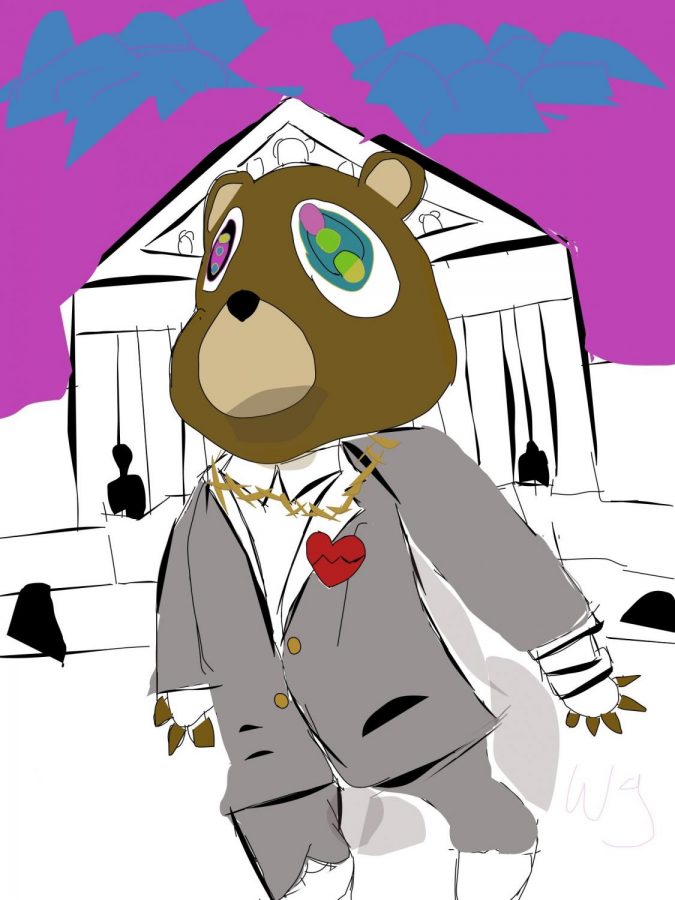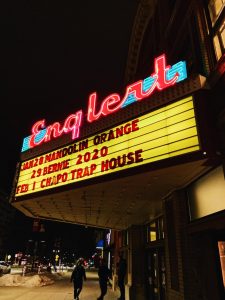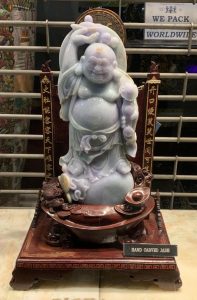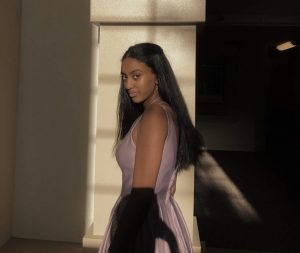Kanye Lawsuit: The Fight to Change the Industry
Wylan Gao ’20 Analyzes the litigation filed by Kanye West and its significance.
This time it’s not Kanye’s ego that’s making the news, but instead his battle for fairness in the music industry.
Kanye West filed lawsuits against his Publisher E.M.I. and Sony ATV for refusing his right to retire and buyback his publishing rights. His superstar team of lawyers contested the contract clauses and claimed they’re unfair. They assert that the “Seven-Year-Law,” a California law stating that contractual agreements with artists last seven years, should be applied. Signed in 2003, the legal obligation to make demands should have ended in 2010 and all the money the label has made since then should be paid to West.
The battle of the five foot eight inches tall, narcissistic David and billion-dollar, corporate Goliath is in the courtroom as I type. Days passed by with no end in sight, like a long album without Premium Spotify. These actions were not new to the 2020 Presidential “front-runner.”
Kanye has protested against his record label in “Yeezus” (2013). “Y’all throwin’ contracts at me. You know that n****s can’t read,” Ye screams at his record label for the creation of biased contracts favoring the industry in his song “New Slave.”
Only few are paying close attention to the case, but they should. Ye’s is fighting for change in artists’ treatment in the industry. Label’s lure in musicians, and then the industry milks them for profit. If the plaintiff’s lawyers convince the judge that the “Seven-Year-Law” applies in the music industry, Kanye will set a precedent of laws and regulations for fair contracts in music.
But it doesn’t end there. Lil Uzi Vert, “X0 Tour Llif3” Rapper, posted on his Instagram Story, “But I’m done with music I deleted everything.” Frank Ocean, R&B artist, withheld his sophomore album “Blonde” for 4 years from Universal, because he wasn’t allowed to release music on his own accord. To fulfill his contract requirements, Ocean released a one hour video of individuals building a promotional chair and released a small E.P. “Endless” with no ads allowed. The record label saw no profits.
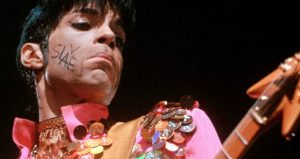
In the social media era, there is no need to sign into a label. Getting exposure for music was hard before the internet, so artists knocked on radio stations’ doors and begged for playing time. In that era, labels had connections and money to get radio playtime. Now, radio isn’t as large of a part of the music industry and all you need to release new music is an internet connection. With a click of a button, an artist can have their music heard instantly.
Chance the Rapper, ¨No Problems¨ rapper, has defied the expectation to sign onto a label. Owning all parts of his music, he is projected to be able to make more money streaming and publishing on his own, directly to corporate sponsors.
The media paints Kanye as insane: his social media antics, storming onto Taylor Swift’s stage at the V.M.A., and ranting at the White House with our president, the Donald. As a reader, you might ask, why would M.A.G.A. hat wearing Kanye, out of all people, make this big change? That’s because he is so insane, that it works. In 2007, people laughed when he sang with auto tune in his songs. Now, hip-hop is saturated with auto tune over 808 drums. It’s going to impact future generations of artists in the Sound Cloud era, and if Kanye wins, The artists will be unchained from corporations, and may actually be able to afford all those gold chains for once.
